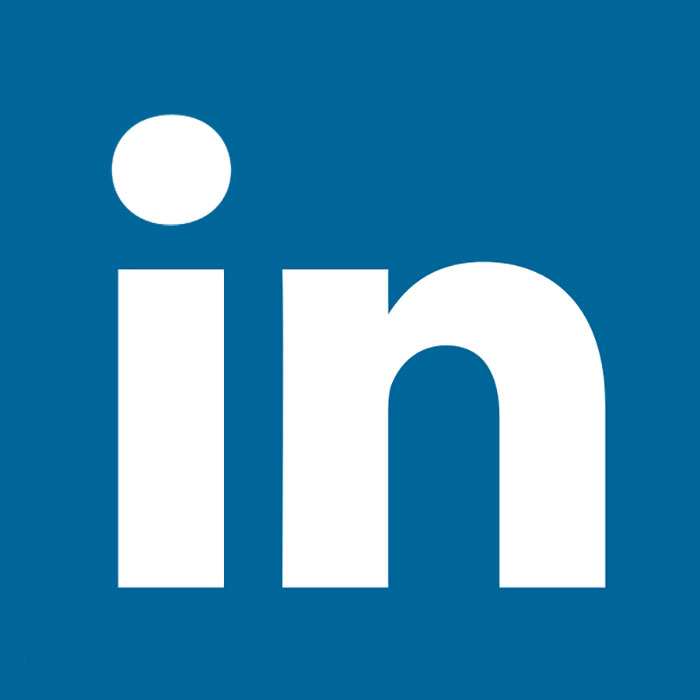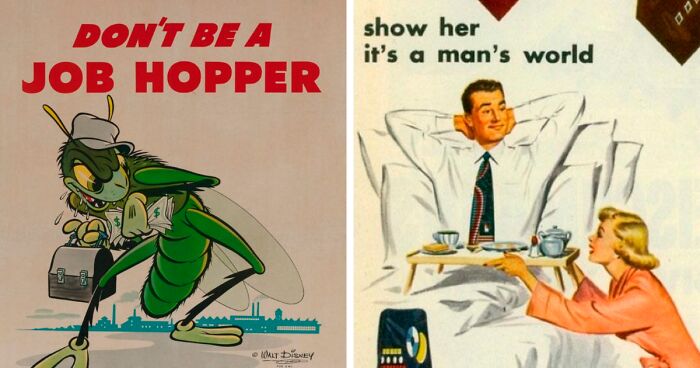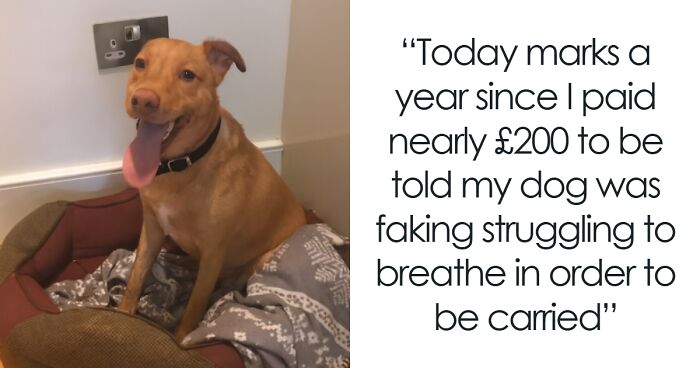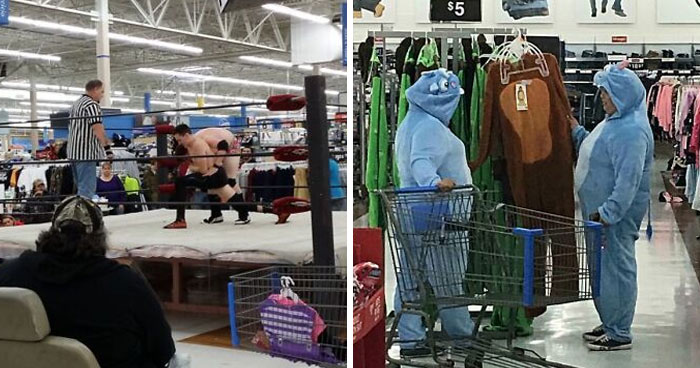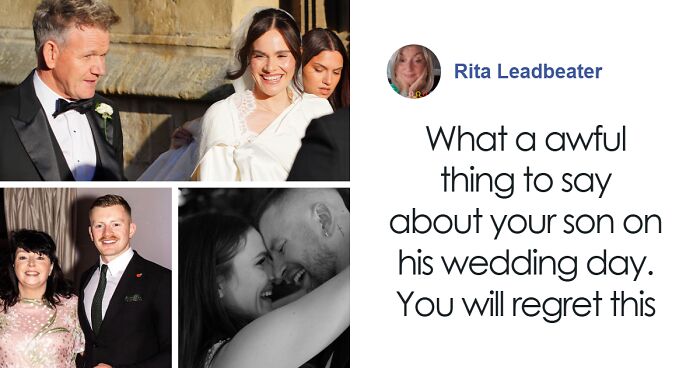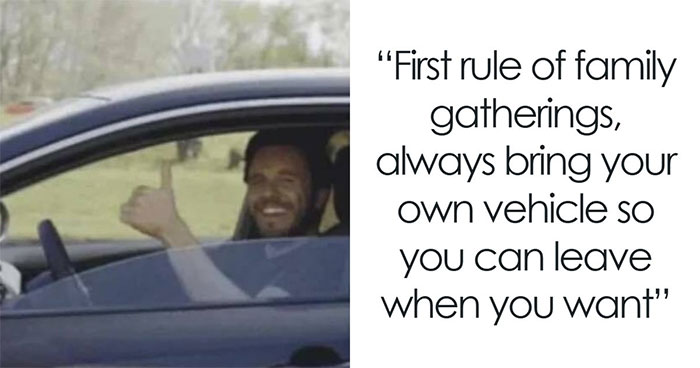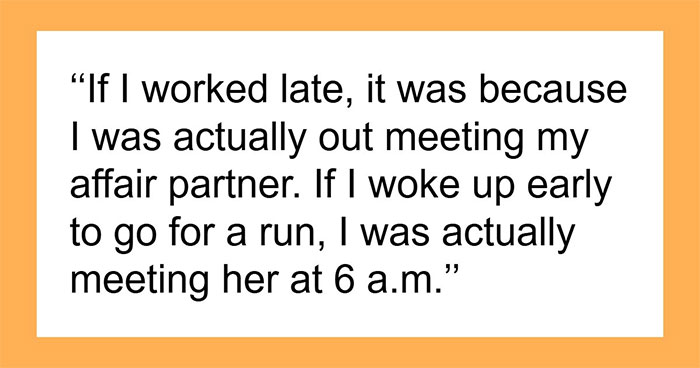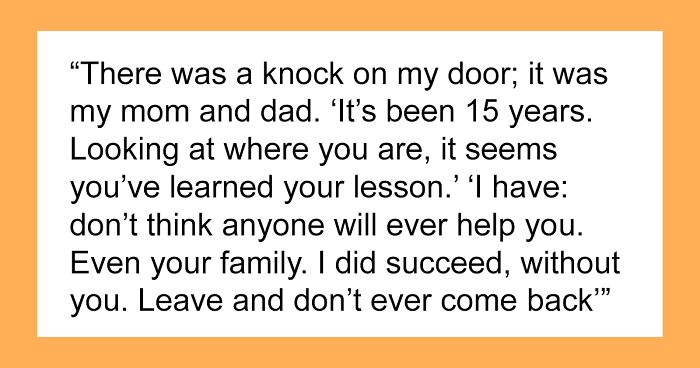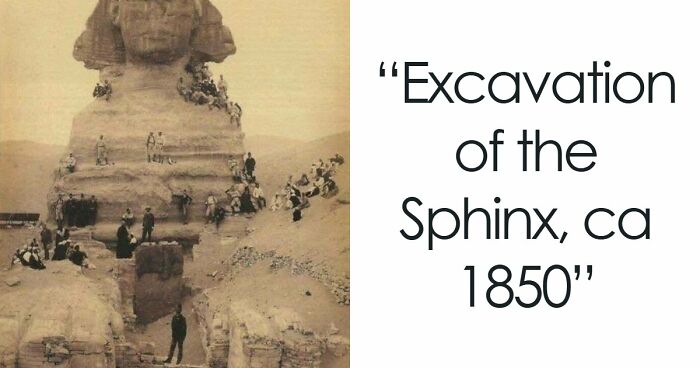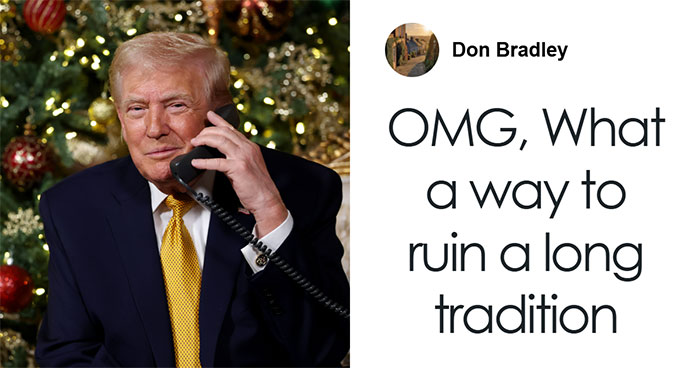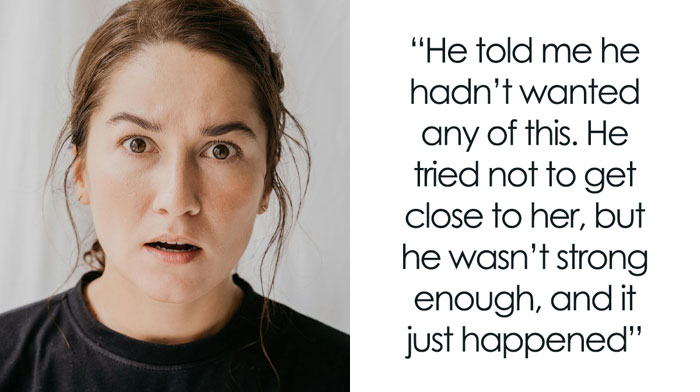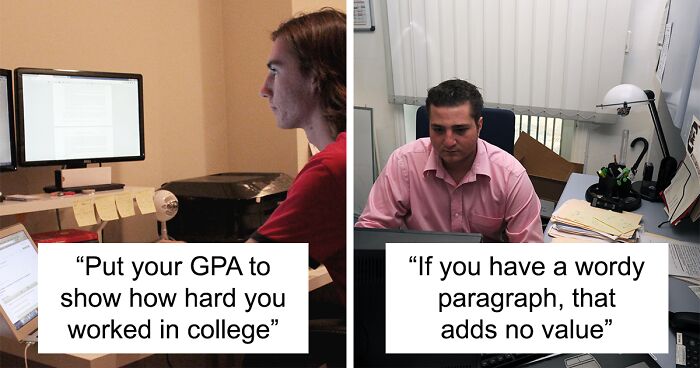
20 Useful Tips For People Looking For A New Job, As Shared By This Career Coach Online
InterviewLike it or not, but having a job and searching for a career go together as one of the most important things in our lives. And even though we might think that a career is not the only thing that defines us, having a well-paid and interesting job is something that we all think about most of the time. Finding something you would really like to do or something that would guarantee you a comfortable life can be difficult. Being tied up by time, financially strained, feeling the pressure of proving something, or not being able to find something close to your heart can be stressful. That’s why a lot of people look for tips and tricks on how to find that perfect job opportunity and how to nail that interview and become employed as soon as possible. And it seems that now we don’t even have to spend hours googling these tips when they can be found simply scrolling through social media platforms such as TikTok.
@j.t.odonnell SIGNS A HIRING MANAGER WILL BE BAD TO WORK FOR. #careercoach #interviewtips #interview #jobinterview #jobs #jobsearch #jobsearchtips #careeradvice #
♬ original sound - J.T. O'Donnell
Of course, it is up to question whether everything we see online is true and will help in the future. Bored Panda already covered an article on the worst career advice, so it shows that not everything we hear is necessarily true or means that it will work for every person. However, there should be some professionals who can provide tested material, right? J.T. O’Donnell, a career coach and the founder of Work It Daily, gained a million followers on TikTok by sharing her knowledge on career growth. In her videos, which have been viewed thousands of times, she shares tips on how to write your resumes, what mistakes to avoid, how to prepare for your interview, and what things to consider important. She also answers more specific questions that she receives from followers presenting insights into the whole hiring process.
More Info: TikTok
This post may include affiliate links.
 "Never leave a job interview without asking ‘What are the next steps in your hiring process & when may I follow up to see if I’m moving forward?'"
"Never leave a job interview without asking ‘What are the next steps in your hiring process & when may I follow up to see if I’m moving forward?'"
And the answer you will get is : " We review the candidates, make a short list for second interview and contact everyone to let them know what their status is." No one will appreciate a follow up call from you!
Bored Panda contacted J.T. O’Donnell to get more insights on career coaching and job hunts. She started her story by becoming one of the first LinkedIn influencers. J.T. revealed that there is a specific audience in this online service and she felt that she wanted to help a bigger audience. She left the staffing industry 20 years ago to become a career coach and to help talented people to increase their chances of getting the job. Later on, she created a company that is “a gym membership for your career,” the reason for this being that a lot of people do not think about investing in career coaching.
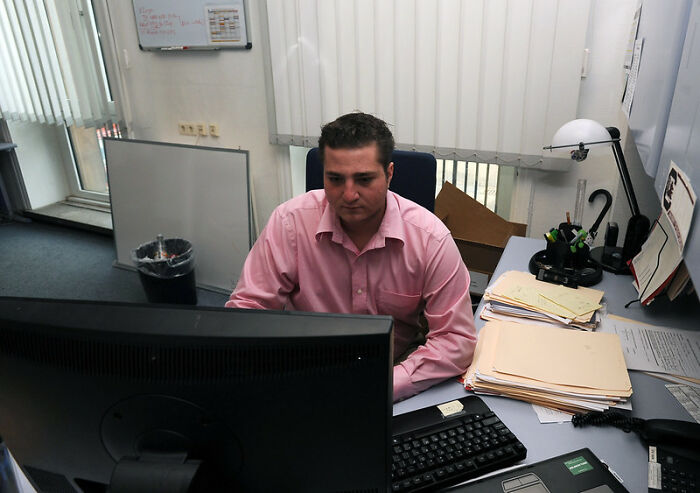 “Recruiters have 6 seconds to skim your resume and look and make sure you meet basic criteria for their position. If you have this big wordy paragraph at the top where you talk about how great you are, that adds no value to them. Instead, that top fold has to have those criteria to go ‘check, check, check.’"
“Recruiters have 6 seconds to skim your resume and look and make sure you meet basic criteria for their position. If you have this big wordy paragraph at the top where you talk about how great you are, that adds no value to them. Instead, that top fold has to have those criteria to go ‘check, check, check.’"
Six seconds? It took me 6 seconds to read the first couple lines of the paragraph below the picture. How could a recruiter read anything more than your name, address, and and maybe a few words of your last job info in 6 seconds? Either it’s BS, or it’s a f*****g scandal.
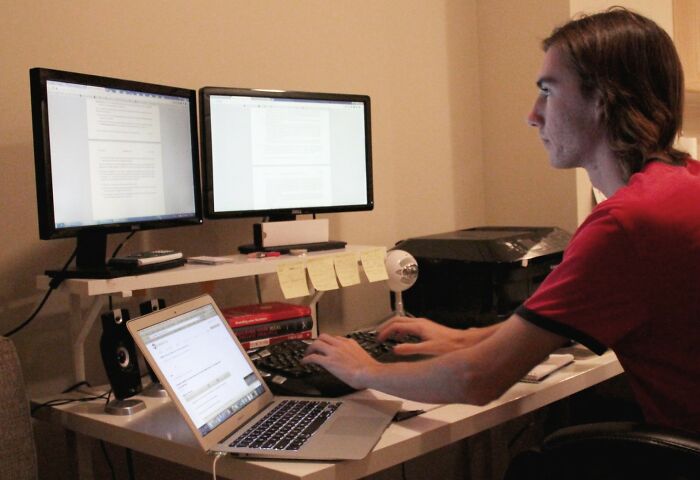 "3 things you don’t need on your resume anymore: references available upon request. If they want references, they’ll ask you for it, you don’t need that on there. An objective statement. You talking about what you’re looking for in a job is not need on a resume. And number three is your GPA. If you never had working experience, if you’re a college student now or a recent grad, you never worked, then you want to put your GPA to show how hard you worked in college. But the moment you get your first job, you don’t need your GPA anymore."
"3 things you don’t need on your resume anymore: references available upon request. If they want references, they’ll ask you for it, you don’t need that on there. An objective statement. You talking about what you’re looking for in a job is not need on a resume. And number three is your GPA. If you never had working experience, if you’re a college student now or a recent grad, you never worked, then you want to put your GPA to show how hard you worked in college. But the moment you get your first job, you don’t need your GPA anymore."
That’s funny, because another “career coach” told me I must have an objective statement, to basically give a short synopsis of the resume. They also said “references upon request” connotes transparency—-a willingness to have a prospective employer speak to your past employers means you have nothing to hide. Resume advice just seems to change with each “career coach” you listen to.
When J.T. was asked whether she was surprised to see people take such interest in topics related to career advice, she admitted that she was not. She knew that people on TikTok would be her audience because of the lack of knowledge they have on how to find a job. “There are just so many misconceptions about building a career, it’s just so much bad information out there, and so who’s going to give them? And how are they going to get that advice? And little 60-second sound bites, people can do that. They can use that. That’s what they're used to.” She adds that up until now, people had to put more effort into finding the right information and understanding it, but now “you can come to my TikTok account and you can watch what you need to watch and really get up to speed faster. I knew people needed it, I knew it was missing, and I just love being able to give that information in that medium.”
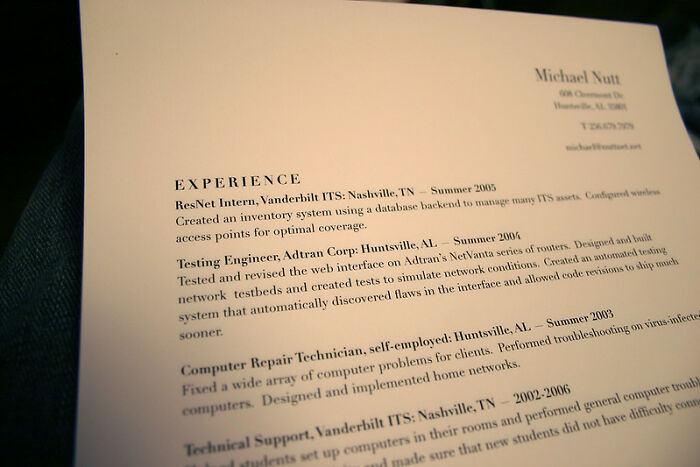 “8 point font, 7 point font, if you can’t read it, you can’t figure out what you’re doing. Fancy graphics, shading, boxes, those don’t go through ATS systems."
“8 point font, 7 point font, if you can’t read it, you can’t figure out what you’re doing. Fancy graphics, shading, boxes, those don’t go through ATS systems."
How to game the ATS system: Keyword your resume with keywords from the ad, or cut and paste the whole ad and hide it. Some ATS systems don't read what is printed, they read the code when uploaded. The system will then tag you as a candidate to interview.
 “Recruiters need your resume to be objective, boring, and easy to read. These fancy resumes don’t help you at all. If you want to know if your resume is done correctly, you have resume review."
“Recruiters need your resume to be objective, boring, and easy to read. These fancy resumes don’t help you at all. If you want to know if your resume is done correctly, you have resume review."
We were curious to find out if people really need all the help they can get in finding a job, which J.T. confirmed to be an absolute truth. She explained one of the biggest mistakes people make when looking for a job and not succeeding. She points out that now, with these applicant tracking systems, it is not getting easier to be noticed and invited to a job interview. J.T. stated that these programs are designed to make it easier for companies to find the right applicant but it makes candidates feel horrible and depressing after they don’t get a reply from the employer. The career coach refers to this situation as not the right way to look for a job: “That’s not looking for work in my world. That’s what I’m trying to make happen, and especially on TikTok, is to teach people what looking for work is really like and how to do it more effectively, so that you'll feel better.”
 "Study the company."
"Study the company."
Some companies (typically massive ones) make this very difficult. You look at their website and it's generic stock photos covering a wide array of industries and products, and their website's company description is like "We offer turnkey solutions for executing customer needs in a wide array of applications and fields. Our solutions are delivered with world class customer support and end user documentation, and are tailored to unique customer demands." Then you arrive at the interview and they're like "Oh yeah our company has 950 sites worldwide and does all kinds of s**t, but at this site we just make shoelaces. Do you know about shoelaces? Welp, hope you read up on shoelaces."
 When you don’t get hired, "what you want to do is to send them a message saying ‘Thank you for letting me know, I’m glad you found the right candidate. I so enjoyed your hiring process, what can I do to be proactive and stay on your radar screen for further opportunities?’ This lets them know that there are no hard feelings, that you have true character, and that you're in it for a long game. That you want to get hired there eventually."
When you don’t get hired, "what you want to do is to send them a message saying ‘Thank you for letting me know, I’m glad you found the right candidate. I so enjoyed your hiring process, what can I do to be proactive and stay on your radar screen for further opportunities?’ This lets them know that there are no hard feelings, that you have true character, and that you're in it for a long game. That you want to get hired there eventually."
But where do these tips come from? Your own experience? Others' success stories? “I was blessed with the background in temporary staffing, in recruiting, HR, and understanding that and knowing what they look for in candidates, and I brought it to the other side. And now I literally work with thousands of people over 20 years. So I know it works, I’m lucky enough, I have access to what’s going on in the recruiting, hiring world, and I take that information and I bring it to individuals, so they can be better,” shared J.T. She emphasized that this all leads to finding the right job that helps to build a stronger relationship between employer and employee.
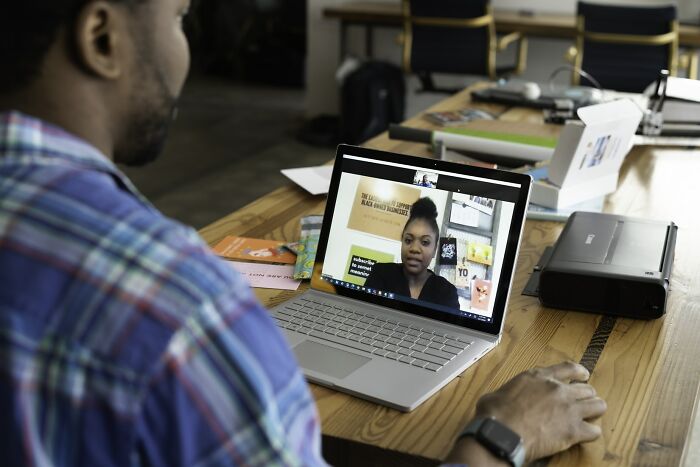 "Interviews are a 2-way street. Pay attention & look for signs it is a good fit for you.”
"Interviews are a 2-way street. Pay attention & look for signs it is a good fit for you.”
The career coach also opened up about her own relationship with work: “I’m a career nerd, I just live and breathe this stuff, and studied every single day so that I can make sure that I’m giving people the latest information.” Her own passion for her career helps thousands of people to see work not as something basic and ordinary, done in order to survive, but something that person can really care about. “The deepest mission of this is to get people off the treadmill and off the society standards and on to something more authentic.”
Which of these tips do you find helpful? Or what are some of the things that were not presented in the list that have helped you find a job more easily or to start a successful career? Share in the comments down below!
 "Write up some smart questions."
"Write up some smart questions."
My favorite is "What do you see as the most important quality needed to be successful in this role?" It gives you a chance to describe how you have that quality. It can also give you good information on the best and worst aspects of the job.
 "3 types of questions you should ask in an interview: the first one is a connection question. ‘How did you start this company? What do you like about working here? Tell me about your work in the company.’ Shows that you know how to build a rapport.
Second question is about meeting and exceeding expectations, proving that you know that your job is to save or make enough money to justify the cost of hiring you, so questions like: ‘How do you measure the success of this person? How do you know that they’re exceeding your expectations and saving the company money, or making the company money? How do you know that this person is doing a good job?’
Third question is around making their life easier, nobody hires you to make their life harder, so you should make a note to them that you get that. So questions around 'How does my job impact your job? What do I do in this job to make your job easier? Or how do we work better together?’ Again, shows the fact that they’ve got the job and you wanna work there, so you know you have to make their life easier. Questions like these are never a bad move."
"3 types of questions you should ask in an interview: the first one is a connection question. ‘How did you start this company? What do you like about working here? Tell me about your work in the company.’ Shows that you know how to build a rapport.
Second question is about meeting and exceeding expectations, proving that you know that your job is to save or make enough money to justify the cost of hiring you, so questions like: ‘How do you measure the success of this person? How do you know that they’re exceeding your expectations and saving the company money, or making the company money? How do you know that this person is doing a good job?’
Third question is around making their life easier, nobody hires you to make their life harder, so you should make a note to them that you get that. So questions around 'How does my job impact your job? What do I do in this job to make your job easier? Or how do we work better together?’ Again, shows the fact that they’ve got the job and you wanna work there, so you know you have to make their life easier. Questions like these are never a bad move."
 "Practice telling your career story."
"Practice telling your career story."
But not to the point where it sounds rote or you are bored by your own story.
 “I’m gonna give you one question that you should always ask in job interviews so that you can figure out what it's going to be like working for this boss. When it’s your turn to ask questions, simply say 'Can you tell me about the most successful person you ever hired and what exactly they did to be successful?’ That’s because whatever response they give you is what they look for in a candidate.”
“I’m gonna give you one question that you should always ask in job interviews so that you can figure out what it's going to be like working for this boss. When it’s your turn to ask questions, simply say 'Can you tell me about the most successful person you ever hired and what exactly they did to be successful?’ That’s because whatever response they give you is what they look for in a candidate.”
I am seriously doubting this person know anything about their job. It would be too obvious that anyone who asks a question like that is doing it as part of an act which makes everything else they said in the interview seem suspicious that they are putting on an act. Don't try to pretend someone you are not. Be yourself.
 “Try not to talk salary in a first interview, if you can, unless they’re very clear about what the salary is. When they call you back and say ‘You’re moving on to the second interview,’ that’s when you can email them and say ‘I’m so excited about this next interview, I did want to check on the pay range for the job, I want to make sure that it’s in the range I’m looking for, so that I don’t waste your time.’ This way they’ll give you a range or they might come back and say ‘Well, what are you looking to make?’"
“Try not to talk salary in a first interview, if you can, unless they’re very clear about what the salary is. When they call you back and say ‘You’re moving on to the second interview,’ that’s when you can email them and say ‘I’m so excited about this next interview, I did want to check on the pay range for the job, I want to make sure that it’s in the range I’m looking for, so that I don’t waste your time.’ This way they’ll give you a range or they might come back and say ‘Well, what are you looking to make?’"
BS. Salary should be the FIST question, even before agreeing to an interview. Companies should display the salary upfront. I’m not wasting my time on “Salary commensurate with experience” crap. Tell me you are willing to recruit value, and I’ll apply. Otherwise? “Fuggetaboutit!”
 "Follow the company on social media."
"Follow the company on social media."
Depends what sector you're working in. In the Public sector, like education and healthcare (in UK, at least) no one gives a monkey's if you follow them on facebook. I dont know about private sector, but i find it implausible that any company would be like "ooh, Josie Bloggs has followed us on FB, give her an interview!"
 “What I have people to do is to look at the job description, identify the top 5 or 6 key skill sets needed to do the job well, and then be brutally honest with themselves and rank themselves where they are the best at down to not as strong. When they get the weakness question, they can say ‘Well, I studied this job, I think these are the 5-6 skills that you most need and if I’m honest, here’s how I see myself here, so I would say these bottom two are where I need the most improvement. Again, I can do them, but that’s why I’m excited about this job, because obviously there is a chance here for me to get better at all of these skills.’ When you present it like that, you show that you don’t think you’re perfect, that you can realistically assess your skills, and that you're already self-directed in how you want to get better and add more value to the job.”
“What I have people to do is to look at the job description, identify the top 5 or 6 key skill sets needed to do the job well, and then be brutally honest with themselves and rank themselves where they are the best at down to not as strong. When they get the weakness question, they can say ‘Well, I studied this job, I think these are the 5-6 skills that you most need and if I’m honest, here’s how I see myself here, so I would say these bottom two are where I need the most improvement. Again, I can do them, but that’s why I’m excited about this job, because obviously there is a chance here for me to get better at all of these skills.’ When you present it like that, you show that you don’t think you’re perfect, that you can realistically assess your skills, and that you're already self-directed in how you want to get better and add more value to the job.”
All depends on how you say it—-both the semantics and your tone of voice. What if you’re looking for an entry level job in a field that’s relatively new to you? You’re not the expert. Should you really be telling a prospective employer what skills a job needs? But if you present it as having read the company mission posted on their website, then telling them how that mission statement coincides with your own reasons for applying there, you’ll probably come off sounding a lot better.
 “Everyone has interview anxiety but there are varying levels and this is for that person whose levels are really high. The only way for you to lower that anxiety is through education. You need to understand how the interview process works, the questions you’ll be asked, the answers you should be giving, how to follow up; the more you understand what’s happening, the easier it is to start to reduce that anxiety so that you can go out there to manage the process.”
“Everyone has interview anxiety but there are varying levels and this is for that person whose levels are really high. The only way for you to lower that anxiety is through education. You need to understand how the interview process works, the questions you’ll be asked, the answers you should be giving, how to follow up; the more you understand what’s happening, the easier it is to start to reduce that anxiety so that you can go out there to manage the process.”
I disagree. If this is the only way you use to address your anxiety it could add to it instead because you could end up worrying about the info you haven't found out. With high anxiety, it isn't about the job. You're likely to experience anxiety in various situations so one of the best ways is to learn some ways of calming yourself like learing some breathing exercises, practising mindfulness meditation or exercise like yoga
 “When you’re learning about companies through reviews, you’re going to come across companies that don’t have great ratings. You're probably gonna want to have a conversation at some point in the interview process about this. Should you do it early on? No, wait till you get further down the line, where clearly they're interested in you, the last interview would be a good sign. When it’s your turn to ask questions, you might say ‘You know, this is a delicate subject, but I want to be honest and bring it up. I was doing some research on the company, I did see themes in the reviews around this and this… (Whatever the problems were) I’m sure you’re addressing this and I just wanted to hear your thoughts on it and how the company is handling it.’ What they say next will tell you all you need to know about whether you should take the job or not."
“When you’re learning about companies through reviews, you’re going to come across companies that don’t have great ratings. You're probably gonna want to have a conversation at some point in the interview process about this. Should you do it early on? No, wait till you get further down the line, where clearly they're interested in you, the last interview would be a good sign. When it’s your turn to ask questions, you might say ‘You know, this is a delicate subject, but I want to be honest and bring it up. I was doing some research on the company, I did see themes in the reviews around this and this… (Whatever the problems were) I’m sure you’re addressing this and I just wanted to hear your thoughts on it and how the company is handling it.’ What they say next will tell you all you need to know about whether you should take the job or not."
I think it would be better to wait until they make you an offer, instead of potentially blowing it by asking those “delicate” questions in your last interview. Then you can use that information when negotiating pay and benefits.
 “You have your ‘walk away rate’ - the lowest amount you can afford to take and your ideal, and you send them that and say ‘It’s this range’ depending on the total package."
“You have your ‘walk away rate’ - the lowest amount you can afford to take and your ideal, and you send them that and say ‘It’s this range’ depending on the total package."
NO NO NO. Don’t give a number first. You WILL be low-balled. Ask the recruiter or HR during the screening interview (if you have one) what the range is. If there is no HR interview it’s generally best to wait until second round interviews to bring it up. By then you know they’re interested. Avoid sharing what you currently earn - you’re going to be paid for your new job, not the one you’re leaving.
What is even more alarming is the author states on her profile she "has a bachelor’s degree in Translation and Interpreting and is currently studying master’s in Future Media and Journalism". Red flags there.
Load More Replies...What this actaully tells us is that the recruitment process has been broken by technology and laziness. This leads to companies missing the chance to employing people who have extra skills that could benefit the company. I work as an IT tech, IT manager, cable installer, graphic designer, web designer, 3D artists, video editor, coding lessons, teacher trainer, CAD operator, 3D printer operator, for two primary school. The only qualification I have is in global communication (using email!) I am constantly told by the all the staff how important I am. With today's recruitment systems I would never have the got the job and and teachers, pupils and parents would not get all the extra things we do for them.
What is even more alarming is the author states on her profile she "has a bachelor’s degree in Translation and Interpreting and is currently studying master’s in Future Media and Journalism". Red flags there.
Load More Replies...What this actaully tells us is that the recruitment process has been broken by technology and laziness. This leads to companies missing the chance to employing people who have extra skills that could benefit the company. I work as an IT tech, IT manager, cable installer, graphic designer, web designer, 3D artists, video editor, coding lessons, teacher trainer, CAD operator, 3D printer operator, for two primary school. The only qualification I have is in global communication (using email!) I am constantly told by the all the staff how important I am. With today's recruitment systems I would never have the got the job and and teachers, pupils and parents would not get all the extra things we do for them.

 Dark Mode
Dark Mode 

 No fees, cancel anytime
No fees, cancel anytime 








